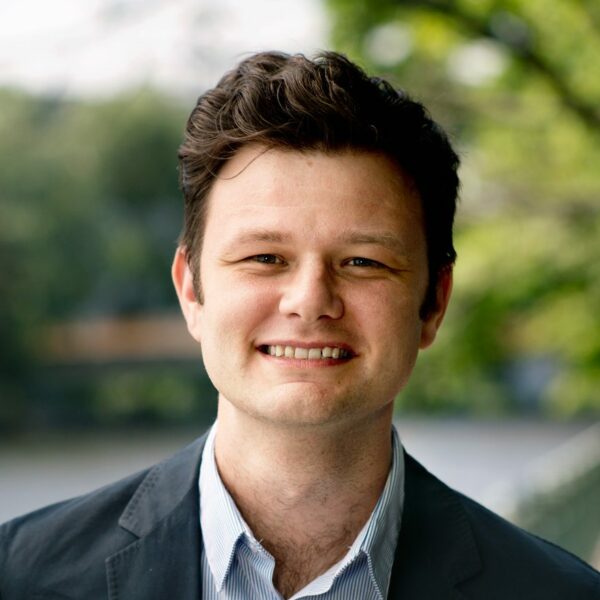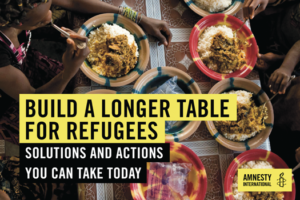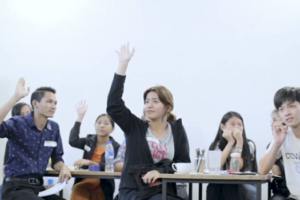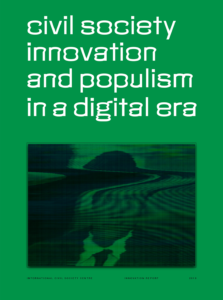In this blog for the 2019 Innovation Report on ‘Responses to Populism in a Digitally Enabled Era, Andy Nilsen, the Director of Advocacy, Communications, Campaigns and Media for Save the Children Myanmar, Sri Lanka and Thailand describes key features of the political and technological context which are driving their innovative Shift! Project.
Myanmar’s rapid recent digital revolution
When I first visited Myanmar back in 2013, the country was in the early stages of a technological revolution. Still, getting my hands on a local SIM card was a challenge requiring all sorts of paperwork and bureaucracy. It was still a luxury item that had once cost hundreds, if not a thousand dollars. Internet access was reserved only for the super-rich or super-connected, and strict regulation of the telecommunications industry meant that in 2012, just 1% of Myanmar’s population had internet access. These barriers to information and connectivity during the military’s 50-year reign oppressed freedom of expression and restricted the ability of communities to mobilize.
Today, when I ask my Myanmar friends and colleagues about the most significant changes in their country since it re-opened to the world eight years ago, access to the internet – and specifically social media – is almost always near the top of their list. According to a 2017 report by Telenor, 90% of Myanmar’s population now live within reach of 3G or 4G services. That’s one of the highest coverage rates in Southeast Asia, and with smartphone penetration at over 80%, Myanmar people are integrating technology into their lives at a rate almost unseen in any other country in the world.
Social media for people or political power?
Myanmar’s prolific use of Facebook as a ‘one-stop’ interface for the internet has fostered an active new space for civic engagement and personal expression. By 2016, successful people-led movements driven through social media started to hold power to account. One such example resulted in the resignation of four members of Myanmar’s Human Rights Commission following public outcry on Facebook around the Commission’s failure to criminally prosecute the perpetrators of a high profile child abuse case. For a community still adjusting to the freedoms of citizen-led-activism, social media was becoming an effective platform for Myanmar people to find their voice.
The ‘honeymoon period’ for social media in Myanmar reflects that experienced elsewhere in the world. Remember when platforms like Twitter were heralded for their potential to break down barriers between individual citizens and institutionalized power? But the world is now grappling with the reality that these same tools can be used to undermine our access to ‘truth’ – and even disrupt and distort democratic processes themselves.
In Myanmar, social media has been used to deliver disinformation campaigns which use hate speech and ‘fake news’ to assert an authoritarian and nationalist agenda – which has further fueled ethnic and religious tensions in order to promote a more mono-cultural view of the country towards the Buddhist majority. The clearest example of this has been the rhetoric used to incite hatred against Rohingya Muslims, in part by evoking a well held myth that the group are ‘recent arrivals’ who should be treated as immigrants. This, along with ‘fake news’ about the actions of the Rohingya during 2017’s clearance operations by the Myanmar Military (e.g. that Rohingya Muslims were burning their own houses), has ‘weaponized’ information, created mistrust of social media – and made social cohesion an even harder task in conflict affected states such as Rakhine.
A new impetus for civil society innovation
The institutionalized use of social media as a tool for spreading hate during the Rohingya crisis has been well documented and sits in stark contrast to the use of these same platforms to drive positive change. This is the great contradiction between ‘old’ and ‘new’ Myanmar, being played out through social media right now. On one side are well-organized forces wanting to reassert the control of military elites, discourage freedom of speech and expression, deny historical realities, and oppress ethnic and religious diversity. On the other side are the vast majority of Myanmar people who want to see peace, value diversity, and have fought for decades for democratic principles.
When I created the Shift movement, I was not directly trying to counter these anti-democratic forces within Myanmar. In fact, the primary purpose of the project was to support adolescents and youth to become more active in cyber civic spaces – and to ‘participate’ in a country where people under 25 have traditionally felt isolated from decision-making processes. But I now believe that our approach, by nurturing youth-led movements to campaign for positive change, is an effective way for civil society to push back against Myanmar’s populist and autocratic forces.
Our innovation: How ‘Shift’ works
Youth groups selected for our Shift programme attend a campaign accelerator workshop which connects them to creative mentors. We use a range of participatory activities to help them unpack their issue and eventually develop a campaign strategy targeting the kind of social triggers that need to be addressed to foster change. We also teach digital literacy and critical thinking skills which young people themselves feel is badly lacking within Myanmar’s education system. These skills are especially important given how hostile online spaces in Myanmar have become.
Shift’s philosophy is that all learning should be experiential. After co-creating their campaign plan, Shift fully funds and supports the youth groups to implement it alongside our creative partners. The groups feel instantly empowered to deliver change within their community, and supported by a larger, interconnected community of peers who are also carrying out their own individual campaigns.
The shift for Save the Children
Governments must be transparent and open to the people they serve. But even within the development sector, larger institutions must look for ways to disrupt our own power structures and ensure that resources and solutions are controlled more by the communities we exist to support.
In particular, when it comes to advocacy and campaigning, we must look for new ways to engage with communities, co-create approaches and transition resources through to grassroots organizations. We should be especially an enabler for children and youth to speak for themselves about the issues that matter most to them. By supporting these movements, I believe we will cause a snowball effect in countries such as Myanmar and sprout the seeds of citizen-led power throughout this emerging democracy.
Myanmar people have fought long and hard for the democracy they have today, but because the constitution still reserves 25% of parliamentary seats to military members, this transition is not yet complete. The strengthening of civil society will be critical over the next decade in building an individual’s belief that they can hold power to account and help shape the society around them. This transition of power to citizens must happen at all levels.
Investing in the transition of the 46%
We are supporting a shift away from ‘old power’ structures – that are rigid, authoritarian and seek to exclude people from decision-making processes – and inspire ‘new power,’ defined by citizen-led movements. We must therefore focus our efforts on people under 25 years of age, who make up 46% of Myanmar’s population. The world these young people live in is totally different to that experienced by a 20-year-old living previously under the military regime. This generation will lead Myanmar into its next phase of democratic transition and our Shift project is an investment in this 46%.
Encouraging this kind of transition is also an effective way to counter-punch the rising forces wanting to divide and dissolve citizen power. My fear is that our investment will fail to match the investments already being made by the other side. Technology can enable solutions, but we must not focus on it at the expense of investing in people – which is exactly the Shift we are making. After all, a stage is nothing without the actors upon it.












